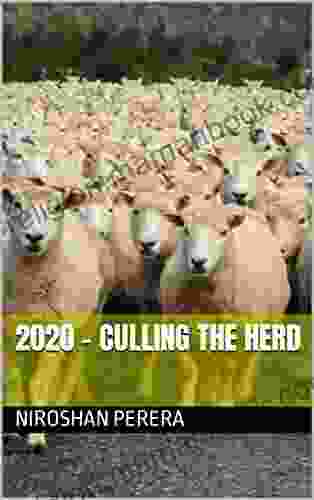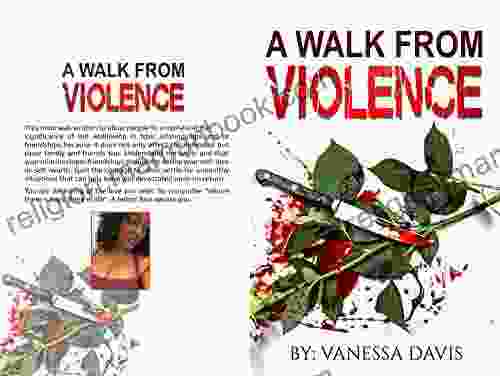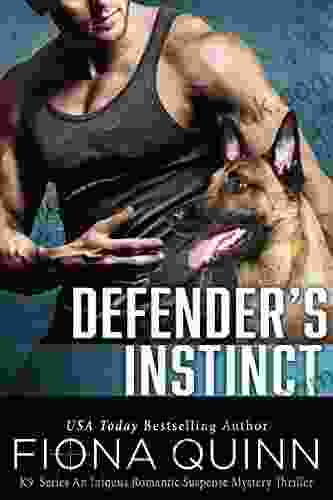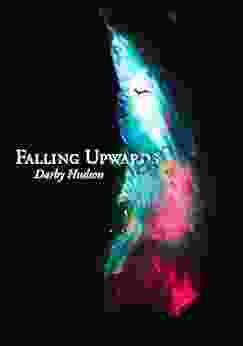Culling the Herd: Dr. Lawrence Matthew's Plan to Reduce Overpopulation and Create a More Sustainable Future

The world is facing a population crisis. The human population has grown exponentially in recent years, and it is estimated that there will be over 10 billion people on the planet by 2050. This rapid population growth is putting a strain on the planet's resources, and it is leading to a number of environmental and social problems, including climate change, food shortages, and poverty.
5 out of 5
| Language | : | English |
| File size | : | 1371 KB |
| Text-to-Speech | : | Enabled |
| Screen Reader | : | Supported |
| Enhanced typesetting | : | Enabled |
| Word Wise | : | Enabled |
| Print length | : | 13 pages |
One of the most controversial solutions to the problem of overpopulation is culling the herd. Culling is the intentional killing of animals to reduce their population size. It is a common practice in wildlife management, but it has also been proposed as a way to reduce the human population.
Dr. Lawrence Matthew is a controversial figure who has proposed a plan to cull the human population by 90%. He believes that this is the only way to ensure the survival of humanity. Matthew argues that the planet's resources are finite, and that there is not enough food, water, and energy to support a population of 10 billion people.
Matthew's plan has been met with outrage and debate. Some people believe that it is a necessary step to ensure the survival of humanity, while others believe that it is a cruel and inhumane way to address the problem of overpopulation.
Arguments for Culling the Herd
There are a number of arguments in favor of culling the human population. First, proponents argue that it is necessary to ensure the survival of humanity. They believe that the planet's resources are finite, and that there is not enough food, water, and energy to support a population of 10 billion people. If the human population continues to grow, they argue, it will eventually lead to a Malthusian crisis, in which the population will outstrip the available resources and there will be mass starvation and death.
Second, proponents of culling argue that it is a more humane way to address the problem of overpopulation than other methods, such as war, famine, or disease. They argue that culling would be a quick and painless way to reduce the population, and that it would not cause the same level of suffering as other methods.
Third, proponents of culling argue that it is a more ethical way to address the problem of overpopulation than other methods. They believe that all humans have a right to life, and that it is wrong to kill them. However, they argue that the right to life does not extend to future generations, and that it is therefore ethical to cull the population in order to ensure the survival of humanity as a whole.
Arguments Against Culling the Herd
There are a number of arguments against culling the human population. First, opponents argue that it is not necessary to ensure the survival of humanity. They believe that the planet has enough resources to support a population of 10 billion people, and that we can develop new technologies to meet our needs.
Second, opponents of culling argue that it is a cruel and inhumane way to address the problem of overpopulation. They believe that it would be wrong to kill innocent people, even if it was for the greater good.
Third, opponents of culling argue that it is an unethical way to address the problem of overpopulation. They believe that all humans have a right to life, and that it is wrong to kill them, even if it is for the greater good.
Ethical Implications of Culling the Herd
The ethical implications of culling the human population are complex. There is no easy answer to the question of whether or not it is ethically justifiable to kill innocent people in order to save humanity. Ultimately, the decision of whether or not to cull the human population is a political one. However, it is important to consider the ethical implications of this decision before making it.
One of the most important ethical considerations is the question of consent. Is it ethical to kill someone without their consent? In the case of culling the human population, it would be impossible to obtain consent from everyone who would be killed. This raises the question of whether or not it is ethical to kill someone without their consent, even if it is for the greater good.
Another important ethical consideration is the question of fairness. Would culling the human population be fair to those who are killed? Would it be fair to kill innocent people in order to save others? This is a difficult question to answer, and there is no easy answer. However, it is important to consider the question of fairness before making a decision about whether or not to cull the human population.
The debate over culling the human population is likely to continue for many years to come. There are strong arguments on both sides of the issue, and it is a difficult decision to make. Ultimately, the decision of whether or not to cull the human population is a political one. However, it is important to consider the ethical implications of this decision before making it.
5 out of 5
| Language | : | English |
| File size | : | 1371 KB |
| Text-to-Speech | : | Enabled |
| Screen Reader | : | Supported |
| Enhanced typesetting | : | Enabled |
| Word Wise | : | Enabled |
| Print length | : | 13 pages |
Do you want to contribute by writing guest posts on this blog?
Please contact us and send us a resume of previous articles that you have written.
 Top Book
Top Book Novel
Novel Fiction
Fiction Nonfiction
Nonfiction Literature
Literature Paperback
Paperback Hardcover
Hardcover E-book
E-book Audiobook
Audiobook Bestseller
Bestseller Classic
Classic Mystery
Mystery Thriller
Thriller Romance
Romance Fantasy
Fantasy Science Fiction
Science Fiction Biography
Biography Memoir
Memoir Autobiography
Autobiography Poetry
Poetry Drama
Drama Historical Fiction
Historical Fiction Self-help
Self-help Young Adult
Young Adult Childrens Books
Childrens Books Graphic Novel
Graphic Novel Anthology
Anthology Series
Series Encyclopedia
Encyclopedia Reference
Reference Guidebook
Guidebook Textbook
Textbook Workbook
Workbook Journal
Journal Diary
Diary Manuscript
Manuscript Folio
Folio Pulp Fiction
Pulp Fiction Short Stories
Short Stories Fairy Tales
Fairy Tales Fables
Fables Mythology
Mythology Philosophy
Philosophy Religion
Religion Spirituality
Spirituality Essays
Essays Critique
Critique Commentary
Commentary Glossary
Glossary Bibliography
Bibliography Index
Index Table of Contents
Table of Contents Preface
Preface Introduction
Introduction Foreword
Foreword Afterword
Afterword Appendices
Appendices Annotations
Annotations Footnotes
Footnotes Epilogue
Epilogue Prologue
Prologue Tom Lowe
Tom Lowe Sarah Ruhl
Sarah Ruhl Mel Dutton
Mel Dutton A M Van Dorn
A M Van Dorn Robert O Keohane
Robert O Keohane James Goode
James Goode Fabrizio Romano
Fabrizio Romano Alma Nilsson
Alma Nilsson Reshonda Tate Billingsley
Reshonda Tate Billingsley Katherine Firth
Katherine Firth Dannika Dark
Dannika Dark Mary Pipher
Mary Pipher Carrie Gibson
Carrie Gibson Lavelle D Eagle
Lavelle D Eagle Elizabeth Shaw
Elizabeth Shaw Peter Orsita
Peter Orsita Sudha Bhuchar
Sudha Bhuchar Sandeep Sharma
Sandeep Sharma Dreena Burton
Dreena Burton Hinemoana Baker
Hinemoana Baker
Light bulbAdvertise smarter! Our strategic ad space ensures maximum exposure. Reserve your spot today!

 Craig CarterDelve into the Poetic Masterpieces of Algernon Charles Swinburne with Delphi...
Craig CarterDelve into the Poetic Masterpieces of Algernon Charles Swinburne with Delphi... Guy PowellFollow ·4.4k
Guy PowellFollow ·4.4k Emilio CoxFollow ·11.8k
Emilio CoxFollow ·11.8k Jace MitchellFollow ·19.2k
Jace MitchellFollow ·19.2k Enrique BlairFollow ·18.4k
Enrique BlairFollow ·18.4k Kirk HayesFollow ·5.6k
Kirk HayesFollow ·5.6k Warren BellFollow ·12k
Warren BellFollow ·12k Braden WardFollow ·14.6k
Braden WardFollow ·14.6k Griffin MitchellFollow ·16.4k
Griffin MitchellFollow ·16.4k
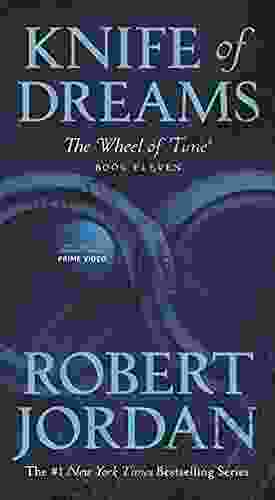
 David Peterson
David PetersonUnveiling Eleven of the Wheel of Time: A Journey Through...
In the vast and intricate...

 Curtis Stewart
Curtis StewartEbony Jay Rice: A Rising Star in the Entertainment...
Ebony Jay Rice is a force to be reckoned...
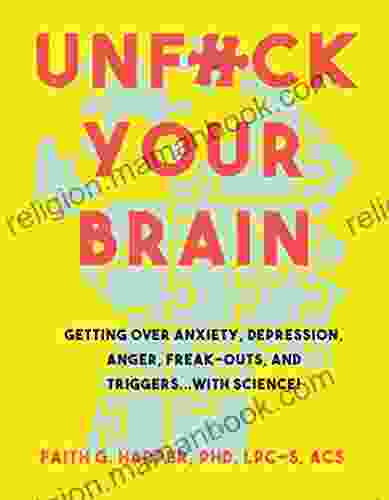
 Matt Reed
Matt ReedNavigating Mental Health with Science: Overcoming...
Mental health is an integral part of...

 Guillermo Blair
Guillermo BlairFormer Magistrate's Poetic Reflections on Love and...
In the hallowed halls...

 Corey Green
Corey GreenOf the Dead: William Burroughs' Post-Beat Masterpiece
William S. Burroughs' Of the...
5 out of 5
| Language | : | English |
| File size | : | 1371 KB |
| Text-to-Speech | : | Enabled |
| Screen Reader | : | Supported |
| Enhanced typesetting | : | Enabled |
| Word Wise | : | Enabled |
| Print length | : | 13 pages |


